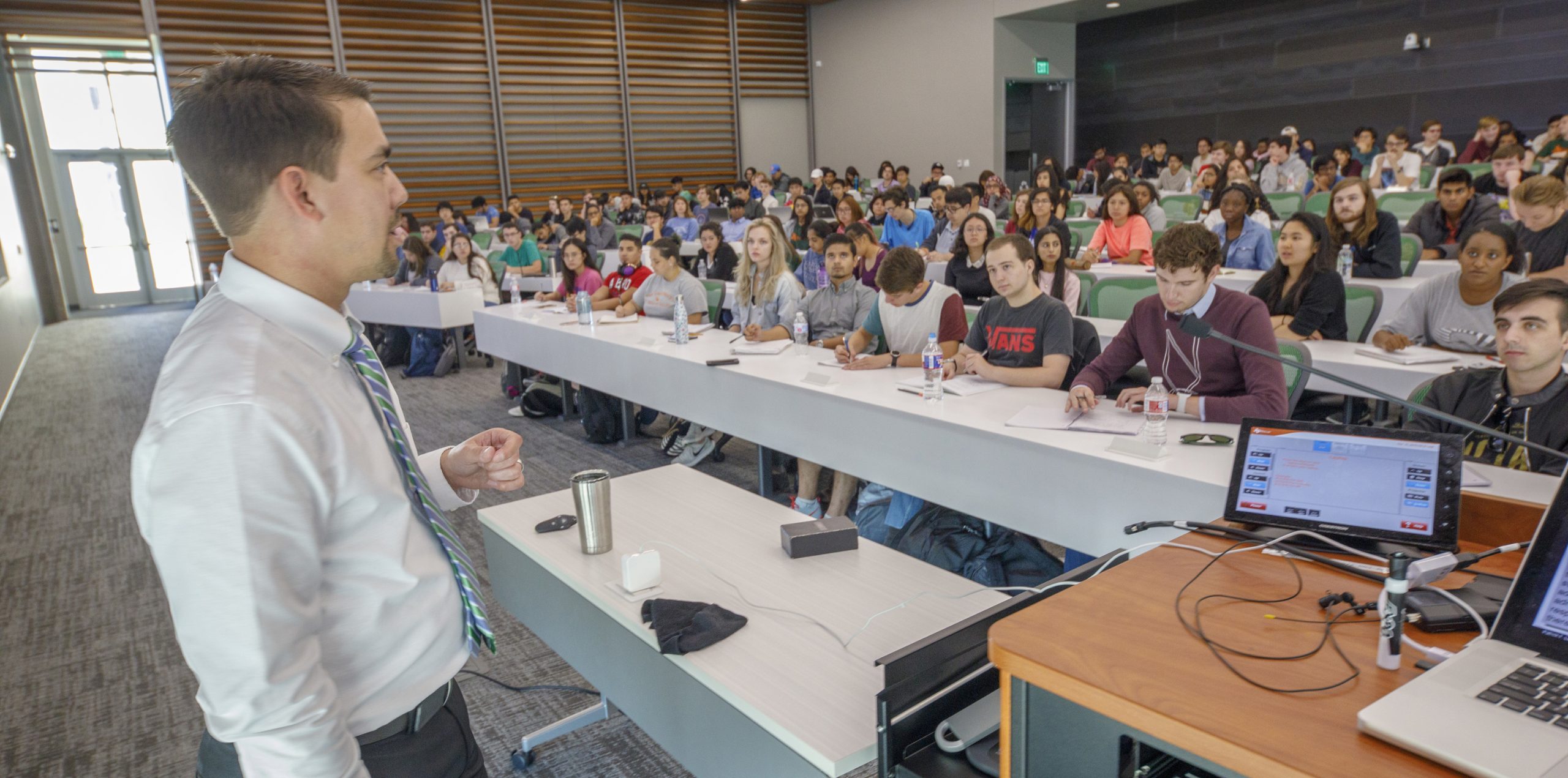
Instructional Improvement Awards (IIA)
IIA Objectives
- To support the continuous improvement of instructors on campus.
- To support the implementation of teaching innovations and enhancements (not including equipment).
- To encourage the development of multiple, discipline-appropriate assessment alternatives and the dissemination of successful models to other units for use in support of teaching improvement.
- To increase visibility of teaching excellence, enhancement, and innovation across and beyond the campus community.
IIA Priorities

IIA awards enable recipients to design, implement, and assess instructional innovation projects that enhance teaching and learning at UT Dallas (UTD). Projects and activities that may be supported by IIA awards include, but are not limited to:
- Projects that improve existing courses. Viable improvements include the incorporation of innovative educational technologies or the development of community-engagement opportunities.
- Research that examines the effectiveness of some aspect of instructional practice or that develops methods to measure instructional effectiveness.
Sample Projects
The following are examples of projects that fit within the purview of IIAs:
- Developing Service Learning Curricula
- Reconfiguring a Standard course into a Blended/Hybrid Learning course
- Developing a mentoring program for teaching assistants
- Developing a program that combines undergraduate research and study abroad
- Traveling to another university to learn about a new disciplinary approach or model
IIA funding is not available to support the redesign of highly specialized courses.
Criteria for Selection
- Innovation
- Sustainability of the Project Activity
- Number of Students Impacted
- Cost-Sharing
Proposals that request funds for services that may be obtained at no cost by using existing campus resources (e.g., eLearning) will not be funded, but will be referred to those resources.
Eligibility and Conditions
Individual full-time faculty (tenured/tenure-track or non-tenure system) in any school, department, program, or instructional unit at UTD may apply. Each proposal must be endorsed by the appropriate unit executive officer(s). Awards are for a one-year period. Budgeted items may include a mixture of resources needed to complete the project, including graduate assistant support, materials and supplies, travel support, and discretionary funds. No funds can be used for faculty salary. Brief final reports are due within three months of the project’s completion and should include a summary of activities and results as well as plans for dissemination and implementation. At a minimum, grant recipients are obligated to share their results with members of the campus community through a public presentation or workshop.
Proposal Requirements
Proposals are limited to three, single-spaced pages, excluding the endorsements, and should include the following information:
- Name, position/rank, home unit, campus mail address, email address and phone number
- Title and 250-word abstract
- Project narrative
The narrative must include: (1) the identification of the project objectives, (2) the underlying rationale, (3) a description of the project and its plan, and (4) an explanation of the practical impact the project’s anticipated outcomes will have on teaching and learning at UTD.
- Listing of budget items and associated amounts
- Endorsements
A letter of endorsement from each proposer’s unit executive officer(s), indicating support for the project and how it would enhance that unit’s instruction. If applicable, letters should specifically address any unit cost-sharing. Cost sharing is not required, but is desirable.
Proposals will be evaluated by the Center for Teaching and Learning for final approval.
Submission
Applicants should submit their proposals and letters of endorsement using the Qualtrics link in the Faculty Resources for Teaching and Research organization in eLearning. Additional letters may be submitted within eLearning. Proposals are not being accepted at this time.